Is Boston Fern Toxic to Cats and Dogs? A Comprehensive Toxicity Guide
The lush and feathery Boston fern, (Nephrolepis exaltata), makes a popular choice for your indoor garden, due to its unique sword-shaped fronds and easy-care requirements. It adds a tropical vibe and aesthetic appeal to any space. But, you may need to be cautious with it if you’ve pets at home, especially if they tend to nibble on your houseplants.
So, is the Boston fern toxic to cats and dogs?
While a Boston fern may not be directly toxic to cats and dogs per ASPCA, ingesting large quantities of it can lead to stomach upset, including vomiting and diarrhea. Additionally, the plant's fibrous texture can irritate your pet's mouth and throat.
Continue reading as we explore the Boston fern’s toxicity to cats and dogs, along with other fern varieties that can be harmful to animals.
Is Boston Fern Toxic to Cats?
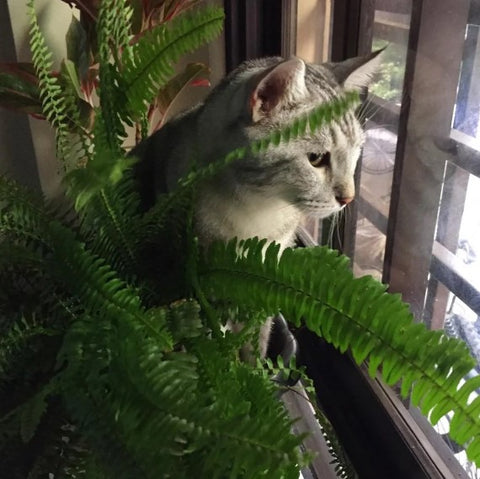
No, a Boston fern isn’t toxic to cats. Still, allowing your cat to ingest a large amount of it isn’t a great idea for the negative consequences it can lead to, as discussed below.
What Happens If a Cat Eats a Boston Fern?
If a cat eats a Boston fern, it's unlikely that it will suffer from any serious issues. Whether it feels unwell will depend on the quantity your cat has ingested. Consuming too much of the plant may lead to side effects, such as stomach upset, vomiting, diarrhea, loss of appetite, etc. If your cat starts showing any of these signs, you should visit a vet for advice and treatment.
Is Boston Fern Safe for Cats?
Although Boston ferns are safe for cats, it may not be a good idea to allow your feline pal to chew on them. This is because the plant can still cause some digestive issues and discomfort if ingested, resulting in the need of a vet’s attention.
Instead, you can grow some cat-friendly plants, like catnip and cat thyme. These green cate-safe treats will encourage your kitty to stay away from other houseplants.
Is Boston Fern Poisonous to Dogs?
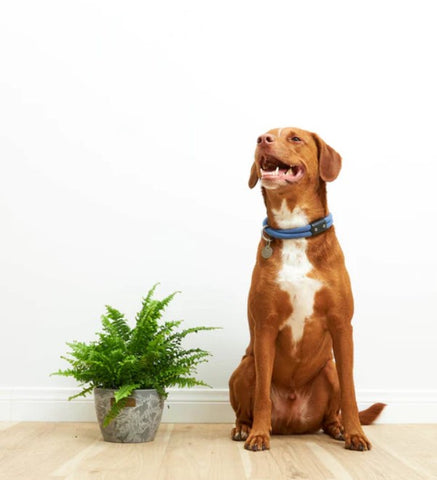
No, a Boston fern isn’t poisonous to dogs. But it’s still a good idea to keep your canine companion away from your houseplants to avoid any sort of digestive issues. Your indoor plants will also look their best if kept out of reach from your dog, which can damage them by chewing on the leaves, digging up the soil, or knocking over the pots.
Is Boston Fern Dog Safe?
Yes, a Boston fern is generally safe for your dog. However, your canine friend may still exhibit some signs of gastrointestinal discomfort if it has ingested intentionally or accidentally large amounts of the plant.
This makes it essential to monitor your dog's access to the Boston fern and other indoor plants, for that matter. You should ideally take preventative measures to avoid any potential issues. The best idea is to keep the plant out of your dog’s reach by placing it on high shelves or in hanging planters. Additionally, you can train your pooch to stay away from houseplants, whether they are pet-safe or not.
What Is the Most Poisonous Plant for Dogs?
Sago palm is believed to be one of the most poisonous plants for dogs. Every part of the plant, be it its leaves, bark, or seeds contains enough poison to kill your dog.
Apart from sago palm, English ivy is another toxic plant for both dogs and cats.
Are Boston Ferns Toxic to Humans?
No, Boston ferns aren’t toxic to humans. While it's true that some ferns can prove harmful to the touch, as they can cause skin irritation, the Boston fern isn't one of them. This makes them a safe houseplant that can happily coexist with young kids, who don’t know which plants are safe and which aren’t.
Note: It’s worth noting that ingesting any non-edible plants may still cause mild gastrointestinal discomfort in people and Boston ferns are no exception to this.
Which Ferns Are Toxic to Pets?
Some fern varieties, like the asparagus, poison hemlock, and foxtail, are considered toxic to pets, according to ASPCA. These ferns contain toxic agents that trigger side effects, such as vomiting, diarrhea, and excessive drooling, if ingested.
Let's learn more about each of these plants below.
Asparagus Fern
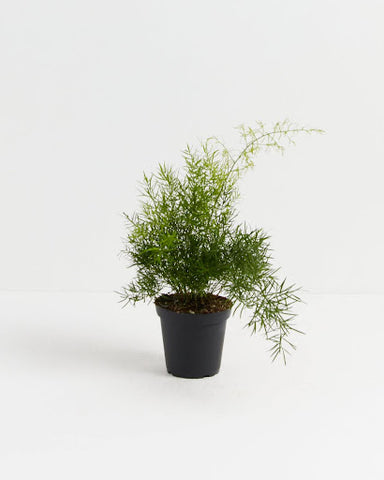
The Asparagus fern is an African fern variety, easily recognizable by its arching fronds that resemble a bottle brush. Its high level of toxicity is due to a compound or steroid called sapogenin. Present in the berries of this plant, this toxin can commonly cause vomiting, diarrhea, abdominal pain, and other more serious symptoms in pets.
Poison Hemlock
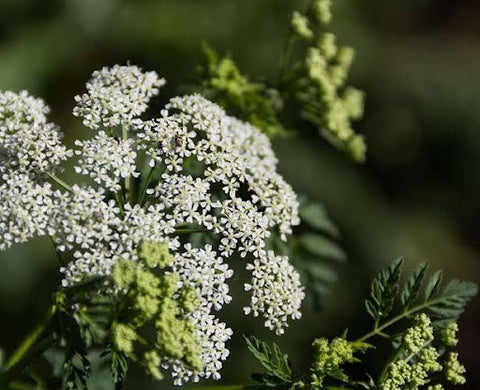
Native to the North American continent, Asia and Europe, the fern-like Poison hemlock isn’t just toxic to pets but fatal, too. Coniine, a toxic substance similar to nicotine, is found in this plant and it can lead to a wide range of symptoms, like seizures, muscle spasms, shaking, drooling, frequent urination, etc.
Foxtail Fern
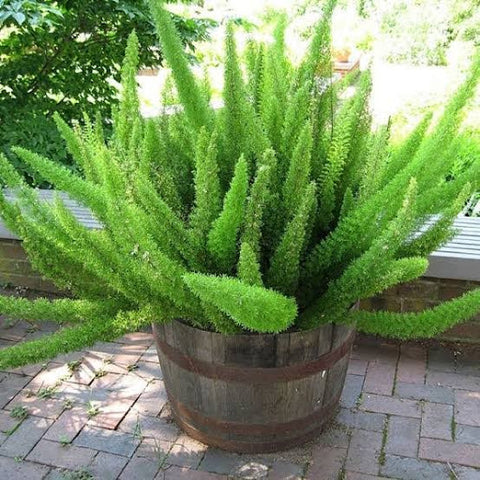
Foxtail fern is another poisonous plant for cats, dogs, horses, and even humans. It belongs to the Asparagaceae family and is notorious for causing vomiting, diarrhea, and abdominal pain if eaten in any amount. Coming in contact with its sap also triggers severe skin irritation.
Toxic Plants for Cats & Dogs: FAQs
Q: Is the Chinese money plant toxic to cats and dogs?
A: The Chinese money plant isn’t toxic to cats and dogs. Its leaves don’t contain any hazardous compounds, making it a safe plant for pets. But consuming it in large amounts can upset their stomach.
Q: Is the spider plant toxic to dogs and cats?
A: According to ASPCA, the spider plant (Chlorophytum comosum) isn’t toxic to dogs and cats.
Q: Is golden pothos poisonous to cats and dogs?
A: Golden pothos is poisonous to cats and dogs, as they contain sharp-edged calcium oxalate crystals. Ingestion of these plants, thus, can lead to severe gastrointestinal distress.
Q: Is lucky bamboo toxic to cats and dogs?
A: Lucky bamboo is toxic to both cats and dogs. In fact, it’s considered one of the most harmful plants that your feline friend or pup can nibble on.
Q: Is Cast Iron plant toxic to cats and dogs?
A: No, the hardy and low-maintenance Cast Iron plant is completely safe for pets, including dogs, cats, and horses. Still, do not allow your furry friends to ingest large amounts of the plant to avoid mild indigestion issues.
Q: Is bracken fern poisonous?
A: Bracken fern is indeed poisonous, but mainly to horses, cattle, and sheep. It contains a thiaminase inhibitor that leads to the development of thiamine deficiency in them.
Conclusion
You can confidently grow and care for a Boston fern in a home shared with pets, as the plant is considered generally safe for both cats and dogs. However, it's important to note that while most ferns are non-toxic and pet-friendly plants, some varieties can cause discomfort and digestive issues if ingested by your pets.
Therefore, it's always advisable to research the fern species you’re planning to bring home and consult with a specialist if there are concerns about its potential toxicity. On that note, there are a variety of other pet-safe plants that you can consider growing at home, be it indoors or outside on your porch or deck.











Leave a comment